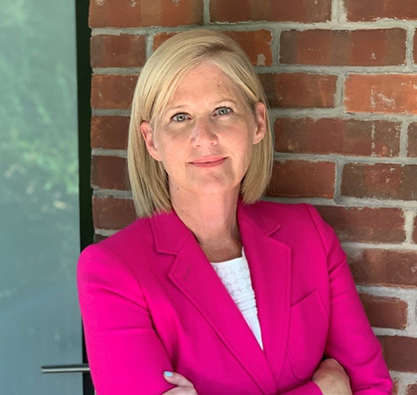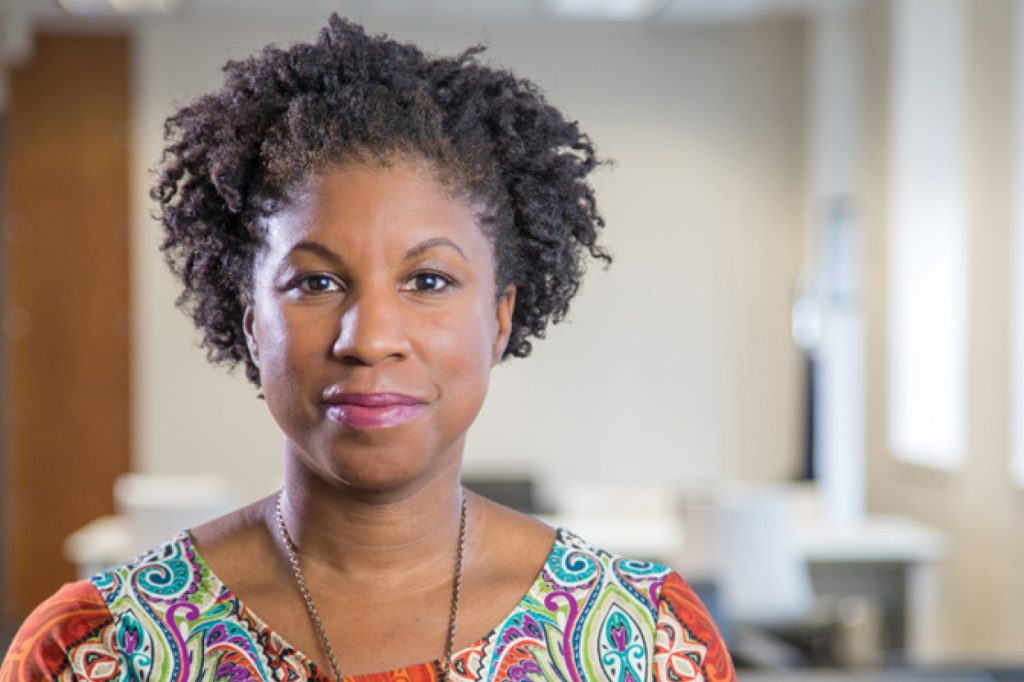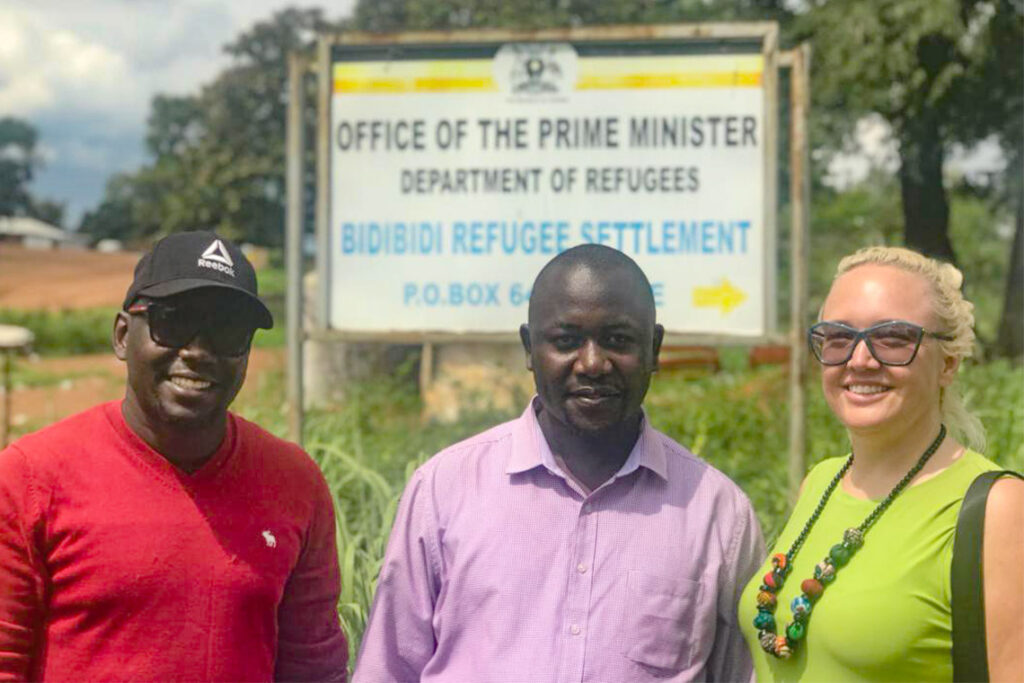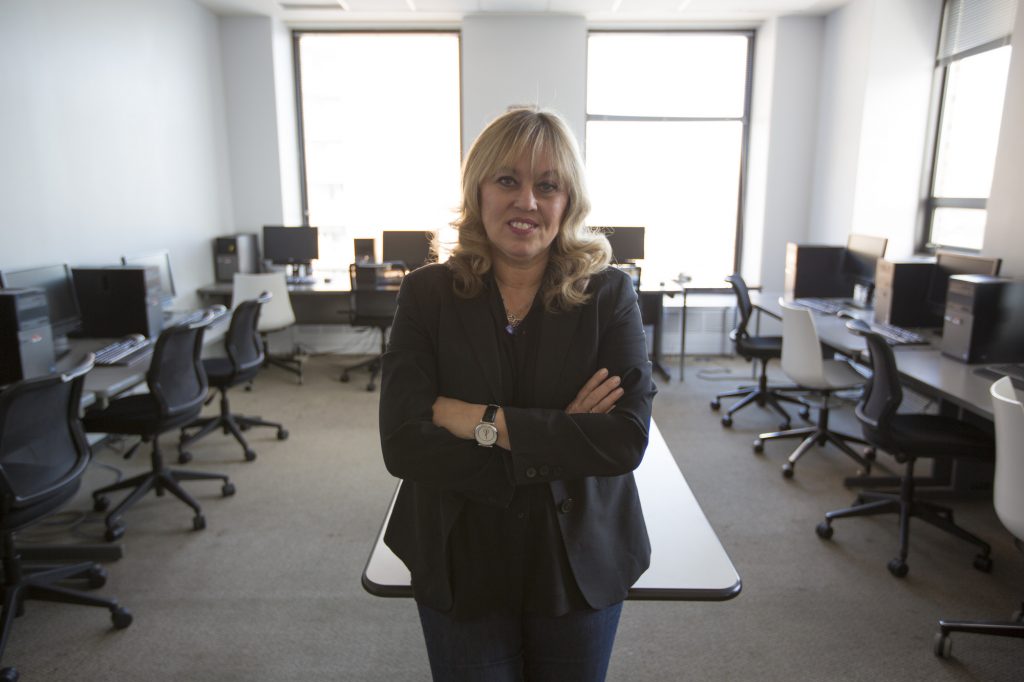Research to Impact
FIFSW Faculty continue to ask hard questions about big issues, with an eye to improving service and care for the communities with which we partner to support sustained social change. During the 2019-2020 academic year, our research capacity has grown. FIFSW faculty received 28 new grants, contributing to a total of 92 active research projects supported by almost $5 million in funding.
Click here to view a list of new grants received in the 2019/2020 academic year.
Below are some research-related highlights from the 2019-2020 academic year.
U of T President’s Impact Award, a first for the Faculty, goes to Professor Barbara Fallon
An internationally renowned researcher, Fallon’s work has informed organizations such as the United Nations and Canada’s Senate Committee on Human Rights. Her research reveals the stark disparities between Indigenous and non-Indigenous children and families in the child welfare systems.
Charmaine Williams is promoted to full professor
Professor Williams is a highly engaged scholar, who is broadly interested in the intersection of mental health and social justice. She examines primary domains such as the experiences of persons and families who are consumers of mental health services and the health and wellbeing of marginalized populations who are living with mental illness.
Her scholarship reflects both quality and quantity, methodological and theoretical significance, and research innovation. She is pursuing novel questions that are advancing her field of mental health and racial disparities. Professor Williams’ outstanding scholarship is equally matched with a high degree of care and quality devoted to her teaching, as well as significant contributions to the Indigenous Trauma and Resiliency (ITR) Program.
New research center
In January, Associate Professor Tanya Sharpe (top photo, right) launched the Centre for Research and Innovation for Black Survivors of Homicide Victims (The CRIB) with seed funds from U of T’s Divisions of the Vice-President and Provost and University Advancement. An interdisciplinary initiative with local and international partners, The CRIB illuminates the unique challenges Black communities face when it comes to homicide violence and the experience of victimization.
Uppala Chandrasekera, director of public policy for the Canadian Mental Health Association (CMHA), says The CRIB project is the first of its kind in Canada. “It will be great to see how outcomes in Canada compare to other countries,” she says. “Thanks to The CRIB, we’re going to have the opportunity to share our lessons learned and learn from international best practices.”
New publications
Five new books were published by FIFSW faculty this year.
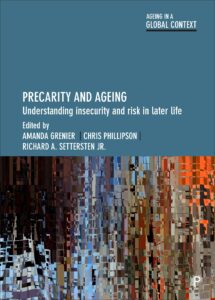 Co-edited by Professor Amanda Grenier, Precarity and Ageing: Understanding Insecurity and Risk in Later Life provides insight into the risks and insecurities that older people face at a time of widening inequality and increased longevity. The book offers new perspectives for those studying and working in social gerontology.
Co-edited by Professor Amanda Grenier, Precarity and Ageing: Understanding Insecurity and Risk in Later Life provides insight into the risks and insecurities that older people face at a time of widening inequality and increased longevity. The book offers new perspectives for those studying and working in social gerontology.
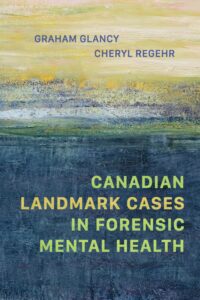 Professor and Vice President & Provost Cheryl Regehr’s new book, Canadian Landmark Cases in Forensic Mental Health, co-authored with Graham Glancy, explores landmark cases that involve individuals struggling with mental health and provides insight into issues surrounding criminal responsibility, fitness to stand trial, access to treatment and more.
Professor and Vice President & Provost Cheryl Regehr’s new book, Canadian Landmark Cases in Forensic Mental Health, co-authored with Graham Glancy, explores landmark cases that involve individuals struggling with mental health and provides insight into issues surrounding criminal responsibility, fitness to stand trial, access to treatment and more.
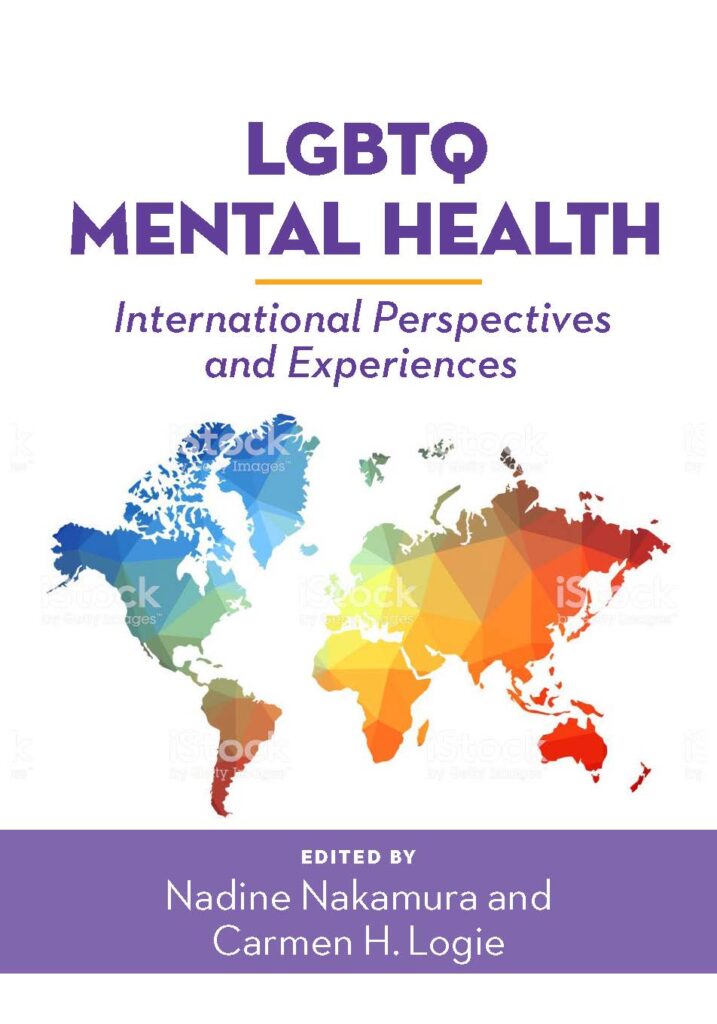 Associate Professor Carmen Logie co-edited the new book LGBTQ Mental Health: International Perspectives and Experiences, which provides an overview of the unique mental health challenges faced by LGBTQ communities in non-Western countries and regions that have received little attention in the psychology literature.
Associate Professor Carmen Logie co-edited the new book LGBTQ Mental Health: International Perspectives and Experiences, which provides an overview of the unique mental health challenges faced by LGBTQ communities in non-Western countries and regions that have received little attention in the psychology literature.
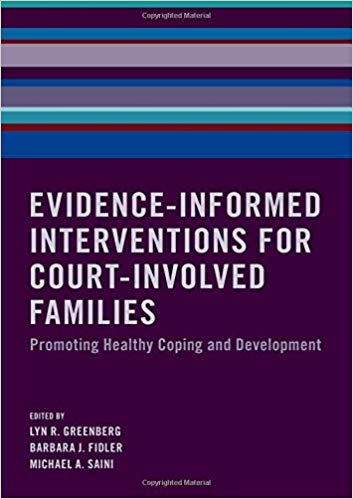 Evidence-Informed Interventions for Court-Involved Families byProfessor Michael Saini provides a critical, research-informed analysis of the core factors to include when developing child-centered approaches to therapy and other family interventions, both in a formal treatment setting and promoting healthy engagement with the other systems and activities critical to children’s daily lives.
Evidence-Informed Interventions for Court-Involved Families byProfessor Michael Saini provides a critical, research-informed analysis of the core factors to include when developing child-centered approaches to therapy and other family interventions, both in a formal treatment setting and promoting healthy engagement with the other systems and activities critical to children’s daily lives.
 Dean and Professor Dexter Voisin new book, America the Beautiful and Violent: Black Youth and Neighbourhood Trauma in Chicago, interweaves the powerful voices and insights of Black youth and their parents and communities in Chicago, with data, research findings, and historical accounts that provide context for their experiences.
Dean and Professor Dexter Voisin new book, America the Beautiful and Violent: Black Youth and Neighbourhood Trauma in Chicago, interweaves the powerful voices and insights of Black youth and their parents and communities in Chicago, with data, research findings, and historical accounts that provide context for their experiences.
Dean’s Network Awards
This fall, FIFSW launched the Dean’s Network Awards to promote the development of collaborations among FIFSW faculty members and other U of T departments or faculties, and provide a central role for community partners. The following faculty received awards:
- Assistant Professors Bryn King and Stephanie Begun,
- Assistant Professor Rachelle Ashcroft,
- Associate Professor Izumi Sakamoto, and
- Assistant Professor Toula Kourgiantakis.
Click here to learn more about their winning projects.
Global Aging
FIFSW has one of the largest gerontological fields of study within an MSW program in North America and is fortunate to have a deep interdisciplinary network of gerontology scholars. In December we provided an overview of the impressive breadth of gerontological research and initiatives now underway at the Faculty. Together, this interdisciplinary and international body of scholarship is having a global impact on gerontology.
HIV-related research
Professor Peter Newman and Associate Professor Carmen Logie were authors in a special issue of the Journal of the International AIDS Society, to commemorate the International Day Against Homophobia, Transphobia and Biphobia. Newman’s article, co-authored with Ashley Lacombe-Duncan (MSW 2010; PhD 2018), among others, contributes to our understanding of emerging sexual health, social and community issues among gay, bisexual and other men who have sex with men (GBM) in the PrEP era. Logie’s research, which examined associations between HIV-related stigma, recent violence and depression among women living with HIV in Canada, is one of the first longitudinal studies to explore this important topic.

COVID-19
Social media mining
Assistant Professor Jia Xue (top photo, left) who holds a joint-appointment with U of T’s Faculty of Information, has been examining social media data — including Twitter, Weibo, and YouTube users’ discussions and sentiments — to help policymakers and clinical practitioners better understand the public’s response to the COVID-19, and the psychological consequences of the pandemic.
Co-parenting
To better understand why some families thrive under physical distancing conditions and some deteriorate, Associate Professor Michael Saini (top photo, middle) and a colleague at Smith College launched a study on co-parenting during the pandemic. “Families have been forced into unchartered territory, and it’s having a tremendous impact on the stability of their lives,” he says.
HIV
Professor David Brennan, Professor Peter Newman and alumnus Adrian Guta (MSW 2007), and associate Professor Carmen Logie each had an article published in Issue 6 of the Journal AIDS & Behaviour, which addressed the potentially devastating impact of the COVID-19 on HIV.
PhD student Gerardo Betancourt‘s research explored how an HIV program for Spanish-speaking communities is applying the lessons it learned from that pandemic to help communities during COVID-19.
Improving prevention and care
Newly funded COVID-19-related research led by FIFSW faculty members will build knowledge on prevention and care. These include a project by Associate Professor Carmen Logie to improve prevention practices among urban refugees and displaced youth in Kampala, Uganda; an international trial of an intervention to increase COVID-19 knowledge and reduce pandemic stress among diverse LGBT+ people, by Professor Peter Newman; and an examination of how stronger social media-based collaborations between non-profit agencies could save lives by Jia Xue.
Assistant Professor Rachelle Ashcroft’s project “Recommendations for Patient-Centred Telemedicine: Learning from Patients’ Experiences with Synchronous Virtual Care During the COVID-19 Pandemic” received funding from the Ontario Ministry of Health and Long-Term Care (MOHLTC).
Professor Faye Mishna’s growing body of research is helping us to better understand how informal online communication in influencing social work service delivery. As the formal use of online information and communication technology in the social work profession grows due to social distancing requirements, so too will its informal use, such as text messages and friend requests from clients, emails sent between sessions or after hours, and the ability for both clients and clinicians to google each other online.
Health insurance
PhD student Shen (Lamson) Lin found that older adults without health insurance in China were 35% less likely to receive needed inpatient care compared to those with job-based health insurance. “Health insurance gaps and associated financial concerns may mean that high-risk populations, such as impoverished older adults, go undiagnosed and untreated, which could inadvertently contribute to the spread of COVID-19,” said Lin.
Featured projects
U of T News featured Associate Professor Carmen Logie’s innovative project to create tablet apps that will allow young people in Uganda’s Bidi Bidi refugee camp to describe their personal experiences with important issues such as gender-based violence, body image and autonomy. The digital story-telling project helps those living in these camp tell their stories and have their voices heard, circumventing barriers such as language issues and low literacy. PhD student Moses Okumu was part of this impressive projects team, which included government and charitable organizations.
On International Women’s Day, we featured a Q & A with Professor Ramona Alaggia, who received a four-year Social Sciences and Humanities Research Council (SSHRC) grant to study the relationship of the #MeToo movement to disclosures of sexual violence across the country. “Intersectionality is important,” said Alaggia, who is asking tough questions about inclusivity. “Has the #MeToo movement only included a privileged few or has it extended to women of different abilities, to racialized women, to sexual minority women, or women who suffer from class oppression? How far is its reach?”
During pride month, Professor David Brennan participated in a Q & A to discuss his recent paper on the effect of social distancing on gay, bisexual, queer, trans and two-spirit men in Canada. “We knew right away that asking people to lockdown at home and reduce their social interactions would be difficult for those who were already experiencing isolation, anxiety, depression or exclusion from certain places,” he said. “Mental health is very under-funded in this country, and now because of social distancing, people are likely to have even less access to support. All of a sudden, they need to go online to access services — or they may not be able to access them at all.”

